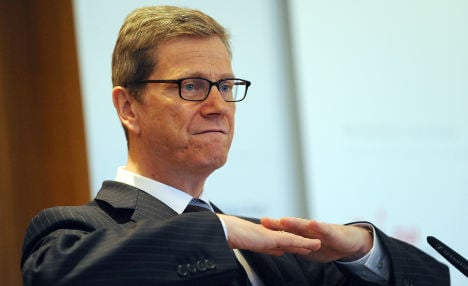Westerwelle told public broadcaster ARD that there are mechanisms in place to support Cyprus, but said the country must be “really serious” about reforms to receive that aid.
“On that front, certainly, many further steps are still needed,” he said.
The foreign minister’s comments come just hours after US ratings agency Standard & Poor’s slashed Cyprus’s credit rating by two notches, to CCC+.
In June, the country formally requested bailout funding from its eurozone partners, with Finance Minister Vassos Shiarly estimating that Nicosia would need about €17.5 billion to stay afloat.
Meanwhile, there are growing fears that the country will be unable to shoulder its debts even after adopting the necessary reforms. The International Monetary Fund is said to be pushing for a write-down of Cypriot debt holdings, according to a report published Thursday in the Süddeutsche Zeitung.
The IMF wants this “haircut” in exchange for its share of bailout money for Cyprus, the paper wrote.
Shiarly has denied talk of a debt write-down, however – and ECB executive board member Jörg Asmussen, a senior German economist, also dampened speculation, saying it is still unclear how much money Cyprus will actually need.
“We won’t have the final numbers until mid-January,” Asmussen told ARD. He also warned that more measures to help Cyprus may be needed if the country’s debt burden proves to be unsustainable.
DAPD/DPA/The Local/arp



 Please whitelist us to continue reading.
Please whitelist us to continue reading.
Member comments